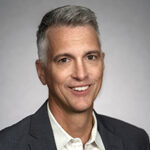Does believing you can accomplish something help you to accomplish it?
Actually, yes. After studying how groups work together in the 1970s, Stanford psychologist Albert Bandura coined the phrase “collective efficacy” to describe the sense of mutual trust and confidence that effective groups feel as they head into a challenge. He showed how the concept can lead to good things happening in all kinds of endeavors, including schools, where educators with strong collective efficacy have students who achieve at higher levels. Our analysis of research on effective school leadership found that collective efficacy has more influence on student achievement even than socioeconomic status or academic press (a school placing emphasis on academics and high expectations).
There’s a virtuous cycle quality to collective efficacy: The more confident that educators are that they and their colleagues can make a difference for students and overcome challenges, the likelier they are to seek out and leverage professional collaboration and learning—and they’re likelier to pass along this sense of optimism to their students. As the pattern repeats itself, the faculty acquire more and more skills, leading to better and better results for students.
Having trust in the team is an important building block of collective efficacy. Genuine trust means knowing we’ve got one another’s backs—sharing common aspirations and goals, and committing ourselves to helping one another—and our students—achieve them.
In the schools we’re currently working with, there is a sense of excitement and optimism for the new school year, but also some anxiety because of the continuing effects of the pandemic. No wonder; we’re all being buffeted by forces that are largely outside our influence. Learning to trust colleagues and build collective efficacy is something we definitely can influence. For the sake of students as well as your own professional satisfaction, I hope you’re fortunate enough to work on a team, in a faculty, that strives to develop collective efficacy in order to change outcomes for kids.
If you need some ideas and strategies for helping develop or strengthen collective efficacy at your school, check out these resources:
- Developing Collective Efficacy – a brief online, self-paced course
- Balanced Leadership for Student Learning – a free paper about effective school leadership practices, including collective efficacy
- Balanced Leadership for Powerful Learning – a book about school leadership, including a chapter about helping school teams become a “purposeful community”

